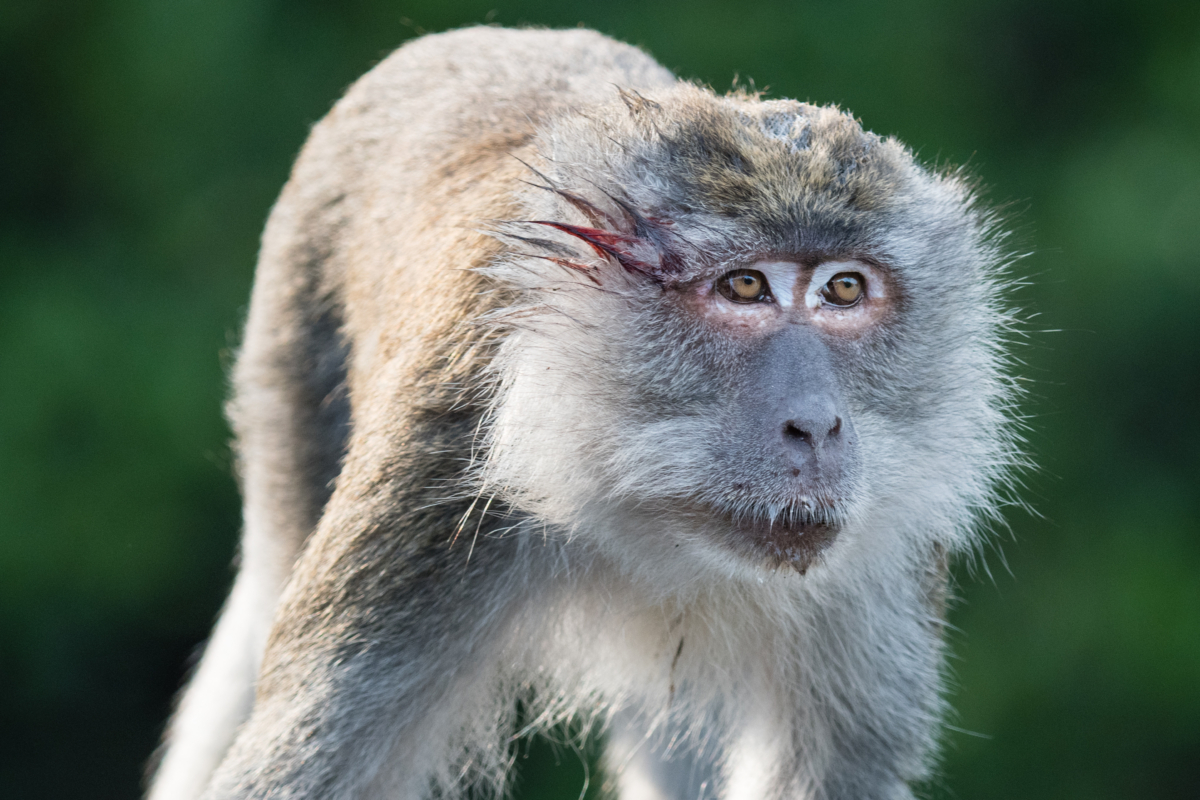As the Great Nicobar Project gears up to transform the southernmost tip of India into a major tourist hub, a pressing environmental concern has emerged: the potential impact on the Nicobar Long-tailed Macaque, a species revered both ecologically and culturally.
Threats to the Nicobar Long-tailed Macaque Population:
The Nicobar Long-tailed Macaque (Macaca fascicularis umbrosa), a species endemic to Great Nicobar Island, faces serious threats from the large-scale development underway. Conservationists and environmentalists are raising alarms about the adverse effects the project could have on these monkeys, which hold significant cultural and ecological value.
- Habitat Destruction: The development plans involve extensive deforestation and land alteration, threatening to destroy the natural habitats of the Nicobar Long-tailed Macaque. The loss of forest cover not only jeopardizes their living space but also disrupts their food sources and social structures.
- Increased Human-Wildlife Conflict: As construction progresses, macaques are likely to encroach more into human settlements, leading to increased conflicts. These interactions could result in negative impacts on both the macaques and local communities, further complicating conservation efforts.
- Ecosystem Disruption: The macaques play a crucial role in maintaining the ecological balance of the island. Their displacement could have cascading effects on the island’s biodiversity, affecting other species and the overall health of the ecosystem.
Cultural Significance:
The Nicobar Long-tailed Macaque holds a special place in local culture. Revered as a symbol of the monkey god Hanuman from the Ramayana, these macaques are deeply respected by the Nicobarese and other indigenous communities. The potential loss of this species due to the project has sparked widespread concern among local populations and conservation groups.
Conservation Efforts and Response:
In response to these concerns, several conservation organizations, including the Association of Indian Primatologists (AIP), are advocating for more rigorous environmental impact assessments and effective mitigation measures. The AIP has criticized the current assessments for failing to address the macaques’ needs and for relying on outdated and inaccurate information.
Efforts are underway to develop a conservation action plan specifically tailored to protect the Nicobar Long-tailed Macaque. This plan will focus on preserving their habitats, managing human-wildlife interactions, and ensuring that the ecological impact of the development is minimized.
Looking Ahead:
As the Great Nicobar Project progresses, it is crucial for developers, policymakers, and conservationists to collaborate in finding solutions that balance development with environmental protection. The future of the Nicobar Long-tailed Macaque—and the broader ecosystem of Great Nicobar—depends on a concerted effort to address these challenges.
For ongoing updates and further information on the conservation of the Nicobar Long-tailed Macaque, follow our coverage and stay informed about the latest developments in this critical issue.

